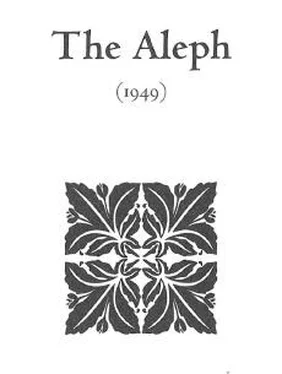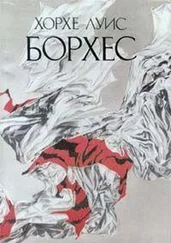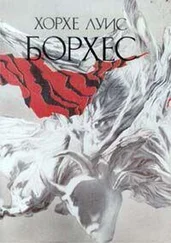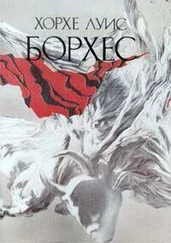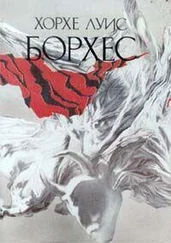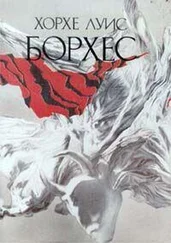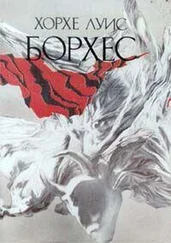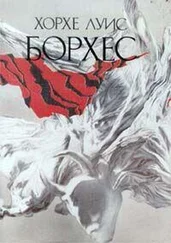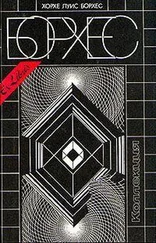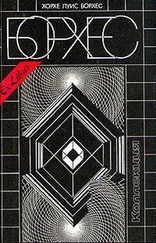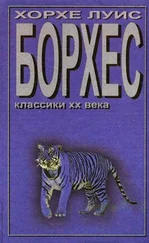Хорхе Борхес - Collected Fictions
Здесь есть возможность читать онлайн «Хорхе Борхес - Collected Fictions» весь текст электронной книги совершенно бесплатно (целиком полную версию без сокращений). В некоторых случаях можно слушать аудио, скачать через торрент в формате fb2 и присутствует краткое содержание. Год выпуска: 1999, ISBN: 1999, Издательство: Penguin (UK), Жанр: Старинная литература, на английском языке. Описание произведения, (предисловие) а так же отзывы посетителей доступны на портале библиотеки ЛибКат.
- Название:Collected Fictions
- Автор:
- Издательство:Penguin (UK)
- Жанр:
- Год:1999
- ISBN:9780140286809
- Рейтинг книги:5 / 5. Голосов: 1
-
Избранное:Добавить в избранное
- Отзывы:
-
Ваша оценка:
- 100
- 1
- 2
- 3
- 4
- 5
Collected Fictions: краткое содержание, описание и аннотация
Предлагаем к чтению аннотацию, описание, краткое содержание или предисловие (зависит от того, что написал сам автор книги «Collected Fictions»). Если вы не нашли необходимую информацию о книге — напишите в комментариях, мы постараемся отыскать её.
Collected Fictions — читать онлайн бесплатно полную книгу (весь текст) целиком
Ниже представлен текст книги, разбитый по страницам. Система сохранения места последней прочитанной страницы, позволяет с удобством читать онлайн бесплатно книгу «Collected Fictions», без необходимости каждый раз заново искать на чём Вы остановились. Поставьте закладку, и сможете в любой момент перейти на страницу, на которой закончили чтение.
Интервал:
Закладка:
"Hardly had the sun appeared above the horizon when two soldiers entered my cell and conveyed me to the chamber of the Afflicted One, wherein I found awaiting me the incense, the chafing-dish, and the ink. Thus day by day did he make demands upon my skill, and thus day by day did I show to him the appearances of this world. That dead man whom I abominate held within his hand all that dead men have seen and all that living men see: the cities, climes, and kingdoms into which this world is divided, the hidden treasures of its center, the ships that sail its seas, its instruments of war and music and surgery, its graceful women, its fixed stars and the planets, the colors taken up by the infidel to paint his abominable images, its minerals and plants with the secrets and virtues which they hold, the angels of silver whose nutriment is our praise and justification of the Lord, the passing-out of prizes in its schools, the statues of birds and kings that lie within the heart of its pyramids, the shadow thrown by the bull upon whose shoulders this world is upheld, and by the fish below the bull, the deserts of Allah the Merciful. He beheld things impossible to describe, such as streets illuminated by gaslight and such as the whale that dies when it hears man's voice. Once he commanded me to show him the city men call Europe. I showed him the grandest of its streets and I believe that it was in that rushing flood of men, all dressed in black and many wearing spectacles, that he saw for the first time the Masked One.
"From that time forth, that figure, sometimes in the dress of the Sudanese, sometimes in uniform, but ever with a veil upon its face, crept always into the visions. Though it was never absent, we could not surmise who it might be. And yet the appearances within the mirror of ink, at first momentary or unmoving, became now more complex; they would unhesitatingly obey my commands, and the tyrant could clearly follow them. In these occupations, both of us, it is true, sometimes became exhausted. The abominable nature of the scenes was another cause of weariness; there was nothing but tortures, garrotes, mutilations, the pleasures of the executioner and the cruel man.
"Thus did we come to the morning of the fourteenth day of the moon of Barmajat. The circle of ink had been poured into the palm, the benzoin sprinkled into the chafing-dish, the invocations burned. The two of us were alone. The Afflicted One commanded me to show him a just and irrevocable punishment, for that day his heart craved to see a death. I showed him soldiers with tambours, the stretched hide of a calf, the persons fortunate enough to look on, the executioner with the sword of justice. The Afflicted One marvelled to see this, and said to me: It is Abu Kir, the man that slew thy brother Ibrahim, the man that will close thy life when I am able to command the knowledge to convoke these figures without thy aid. He asked me to bring forth the condemned man, yet when he was brought forth the Afflicted One grew still, because it was the enigmatic man that kept the white cloth always before his visage. The Afflicted One commanded me that before the man was killed, his mask should be stripped from him. I threw myself at his feet and said: Oking of time and substance and peerless essence of the century, this figure is not like the others, for we know not his name nor that of his fathers nor that of the city which is his homeland. Therefore, Oking, I dare not touch him, for fear of committing a sin for which I shall be held accountable. The Afflicted One laughed and swore that he himself would bear the responsibility for the sin, if sin it was. He swore this by his sword and by the Qur'an. Then it was that I commanded that the condemned man be stripped naked and bound to the stretched hide of the calf and his mask removed from him. Those things were accomplished; the horrified eyes of Yakub at last saw the visage—which was his own face. In fear and madness, he hid his eyes. I held in my firm right hand his trembling hand and commanded him to look upon the ceremony of his death. He was possessed by the mirror; he did not even try to turn his eyes aside, or to spill out the ink. When in the vision the sword fell upon the guilty neck, he moaned and cried out in a voice that inspired no pity in me, and fell to the floor, dead.
"Glory to Him Who does not die, and Who holds within His hand the two keys, of infinite Pardon and infinite Punishment."
(From Richard Francis Burton, The Lake Regions of Equatorial Africa)*
MAHOMED'S DOUBLE
Since the idea of Mahomed is always connected with religion in the minds of Mahomedans, therefore in the spiritual world some Mahomed or other is always placed in their view. It is not Mahomed himself, who wrote the Koran, but some other who fills his place; nor is it always the same person, but he is changed according to circumstances. A native of Saxony, who was taken prisoner by the Algerines, and turned Mahomedan, once acted in this character. He having been a Christian, was led to speak with them of the Lord Jesus, affirming that he was not the son of Joseph, but the Son of God himself. This Mahomed was afterwards replaced by others. In the place where that representative Mahomed has his station, a fire, like a small torch, appears, in order that he may be distinguished; but it is visible only to Mahomedans.
The real Mahomed, who wrote the Koran, is not at this day to be seen among them. I have been informed that at first he was appointed to preside over them; but being desirous to rule over all the concerns of their religion as a god, he was removed from his station, and was sent down to one on the right side near the south. A certain society of Mahomedans was once instigated by some evil spirits to acknowledge Mahomed as a god, and in order to appease the sedition Mahomed was raised up from the earth or region beneath, and produced to their view; and on this occasion I also saw him. He appeared like corporeal spirits, who have no interior perception. His face was of a hue approaching to black; and I heard him utter these words, "I am your Mahomed," and presently he seemed to sink down again.
(From Emanuel Swedenborg, Vera Christiana Religio [1771])*
INDEX OF SOURCES
The Cruel Redeemer Lazarus Morell
Mark Twain, Life on the Mississippi. New York, 1883.
Bernard De Voto, Mark Twain's America. Boston, 1932.
The Improbable Impostor Tom Castro
Philip Gosse, The History of Piracy. London, Cambridge, 1911.*
The Widow Ching—Pirate
Philip Gosse, The History of Piracy. London, Cambridge, 1911.
Monk Eastman, Purveyor of Iniquities
Herbert Asbury, The Gangs of New York. New York, 1927.
The Disinterested Killer Bill Harrigan
Frederick Watson, A Century of Gunmen. London, 1931.
Walter Noble Burns, The Saga of Billy the Kid. New York, 1925.*
The Uncivil Teacher of Court Etiquette Kôtsuké no Suké
A. B. Mitford, Tales of Old Japan. London, 1912.
Hakim, the Masked Dyer of Merv
Sir Percy Sykes, A History of Persia. London, 1915.
---------, Die Vernichtung der Rose, nach dem arabischen Urtext übertragen von Alexander Schulz. Leipzig, 1927.

For Esther Zemborainde Torres
THE GARDEN OF FORKING PATHS
(1941)
Foreword
Читать дальшеИнтервал:
Закладка:
Похожие книги на «Collected Fictions»
Представляем Вашему вниманию похожие книги на «Collected Fictions» списком для выбора. Мы отобрали схожую по названию и смыслу литературу в надежде предоставить читателям больше вариантов отыскать новые, интересные, ещё непрочитанные произведения.
Обсуждение, отзывы о книге «Collected Fictions» и просто собственные мнения читателей. Оставьте ваши комментарии, напишите, что Вы думаете о произведении, его смысле или главных героях. Укажите что конкретно понравилось, а что нет, и почему Вы так считаете.
